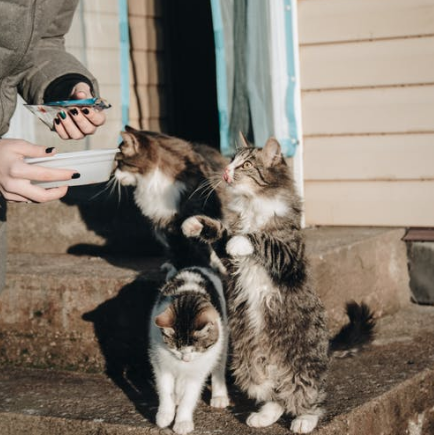每周3-2-1:保持習慣的好處,小善意的價值,修剪你的生活
原文出自於James Clear電子報 https://jamesclear.com/3-2-1/august-4-2022
本篇起,我就不再翻譯內文,先前翻譯也只是用google翻譯,然後再稍微順一下,感覺挺花時間,而且浪費網路空間。後續還是分享我讀完那段文章的收穫與感想為主。
3-2-1: Keeping the habit alive, the value of small kindnesses, and editing your life
read on JAMESCLEAR.COM | AUGUST 4, 2022
3 Ideas From Me
I. "Do not confuse things that are hard with things that are valuable. Many things in life are hard. Just because you are giving a great effort does not mean you are working toward a great result. Make sure that mountain is worth climbing."
並不是困難的事情就有價值!
很多人說:我那麼辛苦付出與努力,為什麼仍然沒有得到好的回報?!
因為你誤把"努力、吃苦"當作必然有豐厚收穫與回報。錯把困難的事當成有價值的事!
選擇比努力重要,這是近幾年相當火熱的話! 爬山前,得先搞清楚那座山是否值得爬!
II. "Keeping the habit alive is a powerful act. It's easier to stay in shape than to get in shape. It's easier to keep a house clean than to get it clean. Many days it may feel like you are treading water, but maintaining your progress saves your future self a great deal of work."
保持纖瘦是來得比復胖後再減肥來得容易,家裡保持乾淨是比大掃除來得輕鬆。
維持良好習慣可以節省後續重啟習慣的時間! 雖然維持習慣或許較無感,但那內建於生活中的無感,恰恰是讓你效率倍增的關鍵。
一但好習慣停止,要重新啟動,總會需要一段時間的調適,就像車子停紅燈,如果是緩慢滑行到了紅綠燈前剛好變綠燈,會比煞停後重新加速來的容易。
III. "There are many situations in life you do not control, but you often contribute to them. I cannot control the rain, but I can control my clothing. I cannot control your feelings, but I can control my kindness. I cannot control my opponent, but I can control my response. You cannot control most outcomes in life, but you can usually influence them. Releasing your attachment to the results does not mean releasing your responsibility to the situation."
生活中很多事情是你無法控制的
不能控制是否下雨,但能掌握出門是否帶傘。
不能掌控別人的感覺,但能掌控自己的善意。
控制你能掌控的,至於你不能掌控的外界事物,就好好掌控你的情緒與反應!
2 Quotes From Others
I. Playwright, poet, and writer, Samuel Johnson, on listening and learning: "I never desire to converse with a man who has written more than he has read."
Source: Apophthegms, Sentiments, Opinions and Occasional Reflections
我從不想和一個寫的比讀的多的人交談。 Well,看來我得再多讀點書 😅😅😅
II. A poem by Danusha Laméris on the value of small kindnesses: "I’ve been thinking about the way, when you walk down a crowded aisle, people pull in their legs to let you by. Or how strangers still say “bless you” when someone sneezes, a leftover from the Bubonic plague. “Don’t die,” we are saying. And sometimes, when you spill lemons from your grocery bag, someone else will help you pick them up. Mostly, we don’t want to harm each other. We want to be handed our cup of coffee hot, and to say thank you to the person handing it. To smile at them and for them to smile back. For the waitress to call us honey when she sets down the bowl of clam chowder, and for the driver in the red pick-up truck to let us pass. We have so little of each other, now. So far from tribe and fire. Only these brief moments of exchange. What if they are the true dwelling of the holy, these fleeting temples we make together when we say, “Here, have my seat,” “Go ahead — you first,” “I like your hat.”
Source: Small Kindnesses
釋放善意的價值,善意就像是人際關係的黏著劑,適時的是放善意,儘管很小的善意,也能拉近人與人之間的距離。
對手捧熱咖啡給您的服務生親切的說聲謝謝。
"來,我的位置給您"、"您先"、"我喜歡你今天的裝扮"... 多釋放些善意,讓周遭的人都能感受到。

1 Question For You
Instead of asking yourself, "What should I do first?" Try asking, "What should I neglect first?" Trim, edit, cull. Make space for better performance.
減法生活,去除不必要的,只留必須的。
要有好的績效,也是這樣,時間就那麼多,沒有績效的事佔據了部分時間,自然就會拉低整體績效。
減法說的簡單,但斷捨離是需要刻意練習的! 要有卓越的表現,就需要砍掉無效的努力,無意義的工作項目,專注在具有產出的工作項目上。
說來容易,做起來難,這也是為什麼需要"刻意""練習"的關係! 😎
